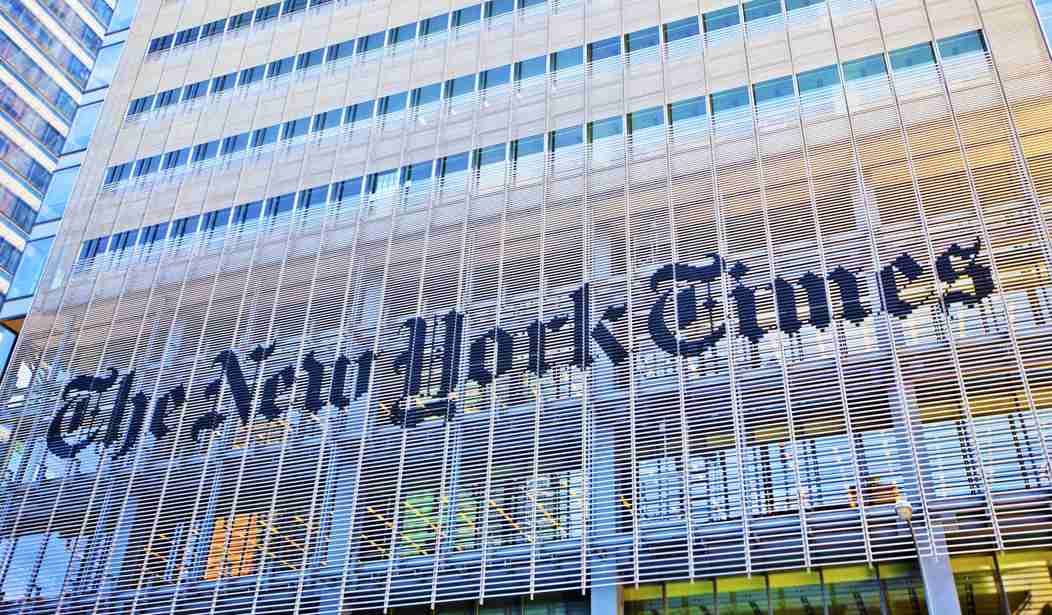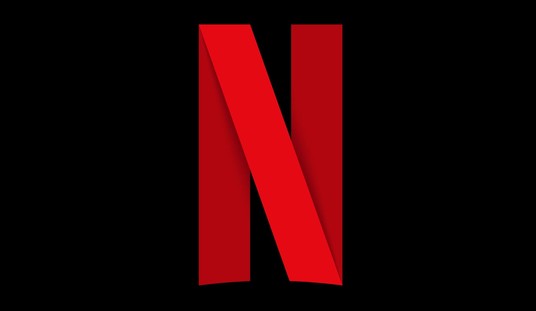The New York Times has a new campaign in which it claims to give voice to truth through nonbiased, independent journalism, but the campaign itself counters this claim.
Look at this latest ad in which the Times declares, “We hold power to account without fear or favor.”
Now is the time to support independent journalism. #TruthHasAVoice
— The New York Times (@nytimes) January 7, 2018
The “He said. She said. She said. She said. She said …,” which is followed by “The truth has power, the truth will not be threatened, the truth has a voice,” betrays the Times’ true agenda — and it’s not independent journalism.
The assumption here is that “She” is to be believed and “He” is not. This is a subjective, not objective, notion. Depending on each individual case, the “He” might be right, and the “She” might be lying — or the other way around. The Times, however, is taking advantage of the #MeToo Movement to promote itself as the bastion of objectivity and truth when really it is promoting a biased view from the start.
Isn’t it past time for the media to stop pretending they’re objective, particularly in this modern era when the notion of “objective truth” is roundly rejected?
In the early days of America, the press didn’t make such a presumption. Newspapers were openly biased, and debates between the various entities were made in the public square. It was up to individual American citizens to use their own reason and religious presuppositions to weed through the words to determine what and whom they believed.
This didn’t go without frustration, as politicians had to deal with hostile newspapers attacking them. Thomas Jefferson wrote at one point “that the man who never looks into a newspaper is better informed than he who reads them, inasmuch as he who knows nothing is nearer to truth than he whose mind is filled with falsehoods and errors.”
Jefferson commented at one point that readers would be better served if every newspaper had four sections headed “Truths,” “Probabilities,” “Possibilities,” and “Lies.”
The first chapter would be very short, as it would contain little more than authentic papers and information from such sources, as the editor would be willing to risk his own reputation for their truth. The second would contain what, from a mature consideration of all circumstances, his judgment should conclude to be probably true. This however should rather contain too little than too much. The third and fourth should be professedly for those readers who would rather have lies for their money than the blank paper they would occupy.
This was the state of the press in the past, and while Jefferson lamented the lies in newspapers, he accepted it as part of living in a free society and was primarily concerned about maintaining its freedom from political control. Freedom of the press was paramount, not that the press was perfect or even objective, but that people could decide for themselves what was true.
Many people think the press historically functioned as a purely objective entity, spoke truth to power, stood independently from politics, and defended truth at every turn. Not so. The press used to accept the fact that human beings were subjective and that the road to objectivity was a long and winding one.
This changed in the late nineteenth century when people started believing that journalism could be as objective and true as science. The professional journalist was born, newspapers were freed from dominant personalities, and objectivity became the cornerstone of American journalism. Journalists suddenly became pristine holders of truth, to be believed and trusted simply because they were journalists, much like a scientist could be trusted for his objectivity.
This evolution didn’t last. Ironically, at the time when scientific objectivism was embraced and applied to journalism, society was abandoning the notion of objective truth and morality for relativism. The result was the facade of objectivity overlaying the actuality of bias, propaganda, partisanship, and subjective moral preferences. This has only worsened as society and the media have become increasingly unmoored from reason and a cohesive worldview that is able to make truth claims.
The solution to this is twofold: one broad and long-term, the other immediate and particular. We need a cultural revival of reason and religion, but we also need to stop perpetuating the myth of objectivity in journalism. Every entity needs to admit its bias. People can then decide for themselves whether a media outlet is still searching for truth through a moral and rational worldview or whether it’s merely protecting its bias through propaganda.
If the media were only honest about their biases, the American people wouldn’t be compelled or intimidated into accepting an outlet’s claim to truth, nor would there be calls to “silence” media that controlling entities deem to be “fake news.” Fake news would be expected and discarded by citizens who bear the responsibility to analyze, discern, and reject it.
As a result, Americans would simply and freely see journalism as a great debate in which they need to be actively involved, thinking and reasoning, not just passively receiving information, trusting that what they’re hearing is objective and true. Of course, as stated, this would require reason to be the filter for truth, not emotionality, which is so easily seduced by lies.
When it comes to the press, the problem isn’t “fake news” but that Americans aren’t able to discern the hidden, or even overt, biases in news as certain outlets claim to have no prejudice. No matter the news source, Americans need to approach each as being laden with subjective influences even as objectivity is sprinkled into the mix.
Some outlets seek truth, even as they admit their biases. Most of these believe there is an objective truth to be discovered. Others aren’t seeking truth at all, but are merely promoting their own biased ideology. It’s up to the American people to learn the difference.
Of course, if outlets were more honest about their partisanship from the get-go, this would make the task easier for Americans. It would also allow us to see more clearly that no one entity gives truth a voice. Each entity is merely a voice, and we need to discover what is true.









Join the conversation as a VIP Member